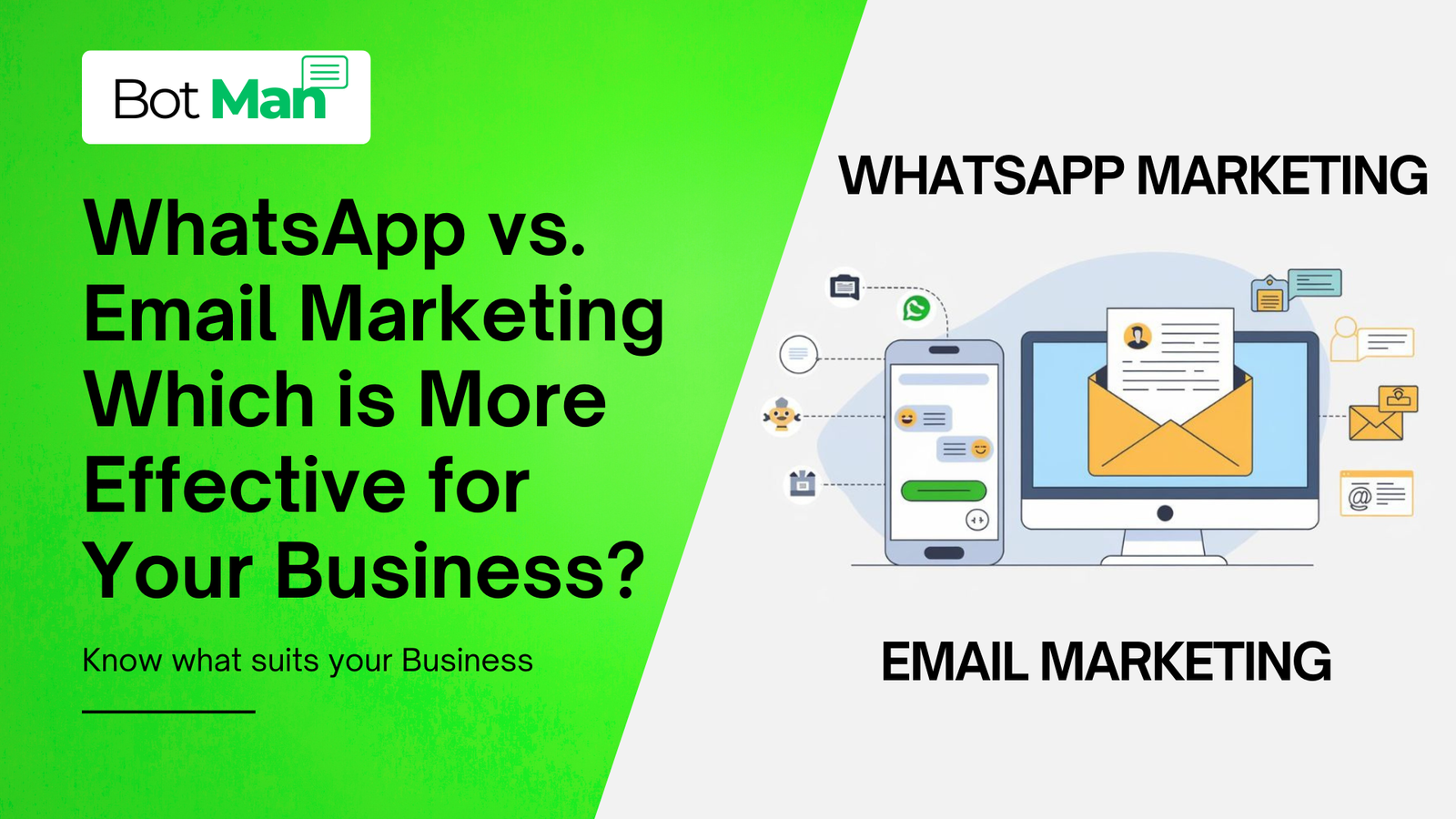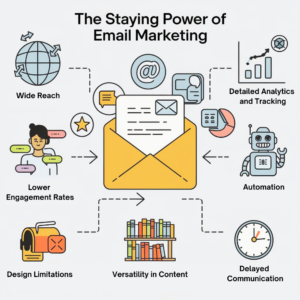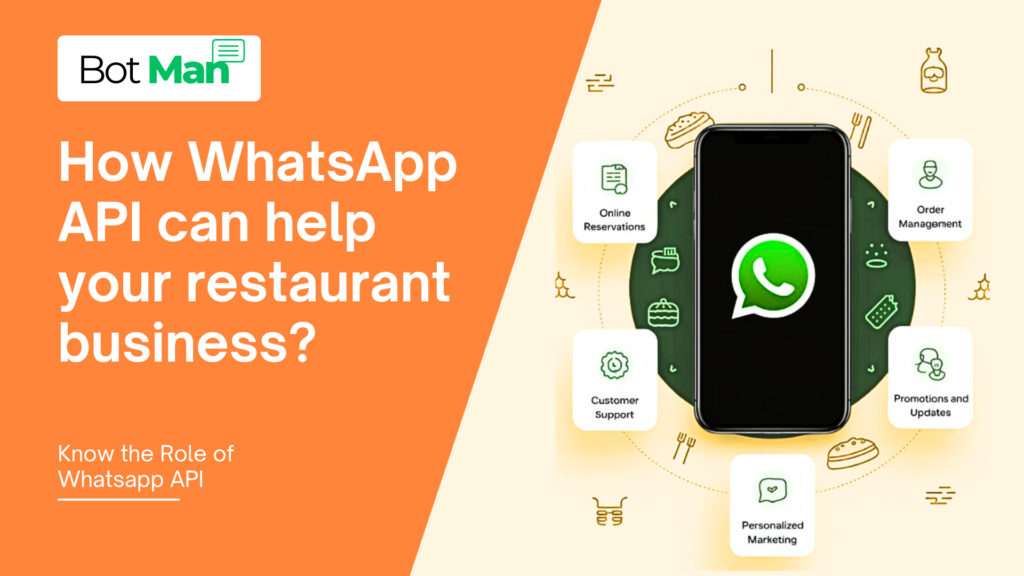WhatsApp vs. Email Marketing: Which is More Effective for Your Business?
In the ever-evolving digital marketing landscape, businesses constantly seek innovative ways to connect with their customers. Two of the most popular methods today are WhatsApp Marketing and traditional Email Marketing. While both have their unique advantages, choosing the right platform can significantly impact your business’s success. So, which one should you choose? Let’s dive deep into the world of WhatsApp and Email Marketing to help you decide which is best for your business.

WhatsApp Marketing vs. Email Marketing:
The Rise of WhatsApp Marketing
In recent years, WhatsApp has exploded in popularity as a messaging platform. With over 2 billion users worldwide, it’s no surprise that businesses are increasingly turning to WhatsApp as a marketing channel. WhatsApp Marketing involves using the app to communicate with customers, share promotional content, provide customer support, and even close sales. The appeal of WhatsApp Marketing lies in its immediacy and personal touch—something email marketing often struggles to replicate.
Advantages of WhatsApp Marketing
- High Engagement Rates: One of the standout features of WhatsApp Marketing is its incredibly high engagement rates. Messages sent via WhatsApp have an open rate of around 98%, which is significantly higher than the average open rate for emails, which hovers around 20%. This high engagement is partly due to WhatsApp’s nature as a direct messaging platform, where users are more likely to check and respond to messages promptly.
- Instant Communication: WhatsApp offers real-time communication, making it perfect for time-sensitive promotions or urgent customer service needs. Whether you’re sending a flash sale notification or resolving a customer query, WhatsApp ensures that your message is delivered and read almost instantly.
- Personalization and Direct Connection: WhatsApp allows for a more personalized approach to marketing. Unlike email, where messages can feel generic and mass-produced, WhatsApp messages can be tailored to individual customers. This direct connection builds trust and loyalty, making customers more likely to engage with your brand.
- Multimedia Capabilities: With WhatsApp, you can send images, videos, voice notes, and documents, making it easier to create engaging and varied content. This multimedia capability can enhance the customer experience and make your marketing efforts more memorable.
- Cost-Effective: Compared to other marketing channels, WhatsApp Marketing can be incredibly cost-effective. There are no fees to send messages, and the cost of maintaining a WhatsApp Business account is minimal. This makes it an ideal platform for small businesses or startups with limited marketing budgets.
Disadvantages of WhatsApp Marketing
- Limited Audience Reach: While WhatsApp has a large user base, it’s still not as universal as email. Some customers may not have WhatsApp or may prefer not to use it for business communications. This limits the potential reach of your marketing efforts.
- Message Fatigue: Because WhatsApp is primarily used for personal communication, there’s a risk of annoying customers if they feel bombarded with marketing messages. Striking the right balance between promotional content and value-driven communication is crucial to avoid alienating your audience.
- Privacy Concerns: WhatsApp’s end-to-end encryption is a double-edged sword. While it ensures secure communication, it also means that businesses have to be extra cautious with customer data to avoid breaches or misuse. Moreover, some users might be wary of sharing their phone numbers with businesses.
- Limited Automation: Unlike email marketing platforms, which offer robust automation features, WhatsApp’s automation capabilities are limited. This can make it challenging for businesses to scale their marketing efforts or manage large volumes of messages.
The Staying Power of Email Marketing
Email Marketing has been a staple in the marketer’s toolkit for decades. Despite the rise of new communication channels, email remains a powerful tool for reaching customers and driving sales. With the ability to send mass messages, segment audiences, and track detailed analytics, email marketing offers a level of control and precision that’s hard to match.
Advantages of Email Marketing
- Wide Reach: Email is almost universal. Nearly everyone with internet access has an email address, making it one of the broadest-reaching marketing channels available. This extensive reach allows businesses to connect with a diverse audience, from tech-savvy millennials to older generations less likely to use social media or messaging apps.
- Detailed Analytics and Tracking: One of the biggest advantages of email marketing is its robust analytics capabilities. Marketers can track open rates, click-through rates, bounce rates, and conversions, providing valuable insights into what’s working and what’s not. This data-driven approach allows for continuous optimization and more effective campaigns.
- Segmentation and Personalization: Modern email marketing platforms offer powerful segmentation tools that allow businesses to target specific audience groups based on demographics, behavior, or past interactions. This means you can send highly personalized emails that resonate with your audience, increasing the likelihood of engagement and conversion.
- Automation: Email marketing excels in automation. From welcome series to abandoned cart reminders, businesses can automate a wide range of email campaigns, saving time and ensuring consistent communication with customers. Automation also enables marketers to deliver timely, relevant messages that drive action.
- Versatility in Content: Emails can be used for various purposes—from newsletters and product updates to promotional offers and customer surveys. This versatility makes email a valuable tool for building long-term relationships with customers and nurturing leads through the sales funnel.
Disadvantages of Email Marketing
- Lower Engagement Rates: Despite its many advantages, email marketing often suffers from lower engagement rates compared to WhatsApp Marketing. With crowded inboxes and the rise of spam filters, getting your email noticed and opened can be challenging. Many emails are ignored, deleted, or relegated to the spam folder without ever being read.
- Risk of Being Marked as Spam: There’s always a risk of your emails being marked as spam, especially if recipients didn’t explicitly opt in to receive them. This can damage your sender reputation and reduce the deliverability of future emails.
- Design Limitations: While email marketing platforms offer various templates, designing an email that looks good across all devices and email clients can be tricky. Poorly formatted emails can harm your brand’s image and reduce engagement.
- Delayed Communication: Unlike WhatsApp, which facilitates instant communication, email is often checked less frequently. This means your message might not be read immediately, which can be a disadvantage for time-sensitive offers or urgent communications.
Choosing Between WhatsApp Marketing and Email Marketing
So, how do you decide between WhatsApp Marketing and Email Marketing? The answer depends on several factors, including your target audience, marketing goals, and available resources.
Consider Your Audience
Understanding your audience is key to choosing the right marketing channel. If your target customers are younger, tech-savvy individuals who value quick, personal communication, WhatsApp Marketing might be more effective. However, if you’re targeting a broader demographic or need to communicate with customers who may not be on WhatsApp, email marketing is likely the better choice.
Define Your Goals
What are you trying to achieve with your marketing efforts? WhatsApp Marketing is ideal for real-time engagement, customer support, and building personal relationships with customers. On the other hand, Email Marketing is better suited for delivering detailed information, nurturing leads, and driving conversions through targeted campaigns.
Evaluate Your Resources
Consider your available resources when choosing between WhatsApp Marketing and Email Marketing. WhatsApp Marketing requires a more hands-on approach, with personalized messages and direct communication. If you have a small team or limited resources, you might find email marketing’s automation capabilities more manageable.
Test and Optimize
There’s no one-size-fits-all answer when it comes to marketing. The best approach is to test both channels and see what works best for your business. Monitor engagement rates, conversion rates, and customer feedback to determine which platform delivers the best results. Remember, marketing is an ongoing process of testing, learning, and optimizing.
Combining WhatsApp Marketing and Email Marketing
For many businesses, the most effective strategy might be to combine WhatsApp Marketing and Email Marketing. Each channel has its strengths, and using them together can create a comprehensive marketing strategy that maximizes reach and engagement.
For example, you could use email to deliver detailed content, such as newsletters or product updates, and follow up with a WhatsApp message for more immediate, personalized communication. Or, you could send a promotional email and use WhatsApp to remind customers of the offer’s expiry date, creating a sense of urgency.
Conclusion
WhatsApp Marketing and Email Marketing each offer unique advantages that can benefit your business in different ways. By understanding the strengths and limitations of each platform, you can make an informed decision about which is best for your marketing needs.
Whether you choose WhatsApp, email, or a combination of both, the key to success lies in understanding your audience, setting clear goals, and continually optimizing your approach. In the fast-paced world of digital marketing, staying flexible and open to new strategies is essential for staying ahead of the competition.
For businesses looking to streamline their marketing efforts, services like Botman can be invaluable. Botman provides comprehensive solutions for both WhatsApp and email marketing, helping businesses automate processes, engage with customers more effectively, and maximize their marketing ROI.
So, take the time to explore both channels and find the right mix for your business. With the right tools and strategies, you can connect with your audience in meaningful ways and drive long-term success. Happy marketing!



